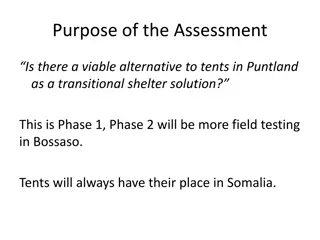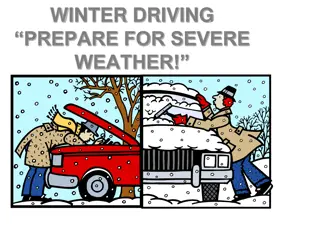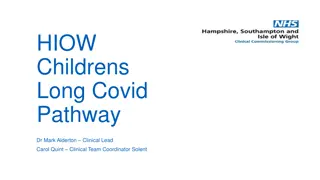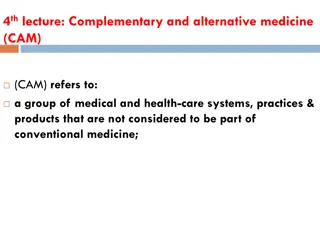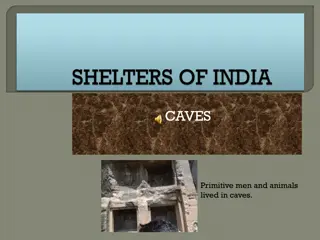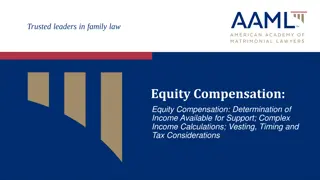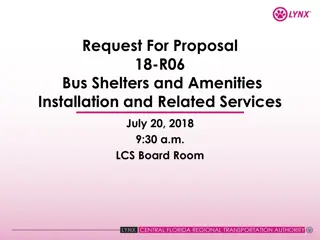Impact of COVID-19 on Winter Night Shelters and Alternative Support Solutions
The COVID-19 pandemic has significantly impacted winter night shelters, leading to challenges in providing safe and effective accommodation for individuals experiencing homelessness. This includes limitations on communal shelters, reduced bed capacity, and increased health risks. Alternative support solutions such as self-contained provision and essential services like food support and casework are being explored to address the evolving needs of vulnerable populations during this crisis.
Download Presentation

Please find below an Image/Link to download the presentation.
The content on the website is provided AS IS for your information and personal use only. It may not be sold, licensed, or shared on other websites without obtaining consent from the author.If you encounter any issues during the download, it is possible that the publisher has removed the file from their server.
You are allowed to download the files provided on this website for personal or commercial use, subject to the condition that they are used lawfully. All files are the property of their respective owners.
The content on the website is provided AS IS for your information and personal use only. It may not be sold, licensed, or shared on other websites without obtaining consent from the author.
E N D
Presentation Transcript
COVID 19 Night Shelter time line Main Decent begins 21st March 2020 Mass testing available England lockdown 2.0 Main Decant complete All WNS projects now empty 1st April 2020 01 21 05 Transformation Fund tranche 1 decisions Transformation Fund tranche 2 decisions End of Brexit transition period 12 week hotel bookings end Lockdown begins 23rd March 2020 Operating principles published Transformation Fund launched Virus Peak Virus Peak Shelter season ends Shelter bed peak PM Statement 21 21 07 15 20 23 20 20 Nov March May June July August Sept Oct Dec Jan Feb Mar April 01 01 31 Phased unlock begins 11 Shelter season begins Local restrictions begin Leicester, 30th June 2020 2020 2021 Winter flu season begins Historically week 40 Winter flu peak Historically week 03-04 Transformation funds must be spent by projects Likely second wave range 11 May 2020
Winter Night Shelter overview Seven night roaming / rotating night shelter seems impossible from a public health perspective Communal night shelters ruled out in all but exceptional circumstances due to health risks Concerns over social distancing will mean we will all have to make revisions to how these projects operate, meaning less beds Even in the best case scenario it will not be possible to completely eliminate the risk of infection in a night shelter and it may be possible that even where projects are able to run in different settings, there may still be issues
Impact of COVID-19 on Winter Night Shelter beds 2019/20 2020/21 152 faith and community run night shelters 2100 beds provided in bed peak 9,100 people accommodated in projects 26 faith and community projects offering self contained accommodation 40 night shelter projects offering individual rooms 40 offering not offering accommodation but offering some alternative support Estimate approx. 650 beds Estimate approx. 1000 -1500 people accommodated
If not a night shelter, then what? Support for LA self contained provision Food support, befriending, casework for guests in hotels Example: Robes Night Shelter, Southwark, London Should not operate this year Rotating night shelter Cannot run Member of the public provides a spare room to a person experiencing homelessness, often a non-UK national without access to public funds. Example HJ Hosting Hosting Discuss w/ LA and local public health Advised not to operate communal space this year Volunteers offer regular support through phone or meetings with a person experiencing or having recently experienced homelessness Example Citadel, The Passage Mentoring & Befriending Single venue Night shelter Apply for funding Volunteers or paid staff provide support for people at risk of homelessness by preparing casework, assessing options Example: Wycombe Homeless Connection Advocacy May operate, default should be self contained Night shelter offering single rooms PRS Churches or faith groups support access to the Private Rented Sector for people experiencing homelessness and support people to stay in their tenancy Not clinically vulnerable Accommodation Single room e.g shared house Organisations who have previously provided night shelter accommodation move to offering accommodation in a shared house or bnb Advice varies according to provision Partnership working Other church interventions Self contained e.g Hotel, Studio flat Organisations who have previously provided night shelter accommodation move to offering accommodation in a shared house or bnb
How can you plan? Engage with the need is in your area: is it rough sleeping? Is there a shortage of planned beds? (faith forums, Homelessness task group, etc) Be aware of the changes to issues that can contribute to homelessness: Immigration (Brexit transition end), changes to priority need, private rented evictions etc. Where possible plans are always better for the involvement of people with lived experience
After Covid, questions and things to consider How will you use your building after the Spring? What examples are there elsewhere of projects and good practice that might work in your area? What is the prophetic voice that will be needed in the Spring? Jobs, immigration, fiscal restraint, housing options Can or should we go back to having communal night shelters?
Resources Accommodation options: Winter 2020 Toolkit Examples of delivering support for people experiencing homelessness in the age of Covid-19: A New Season: Case Studies Brexit and the end of the transition period: http://www.jointpublicissues.org.uk/wp- content/uploads/2020/11/EU-homelessness-guide.pdf Guide for Churches on how to support people experiencing homelessnes this winter: Published in December





